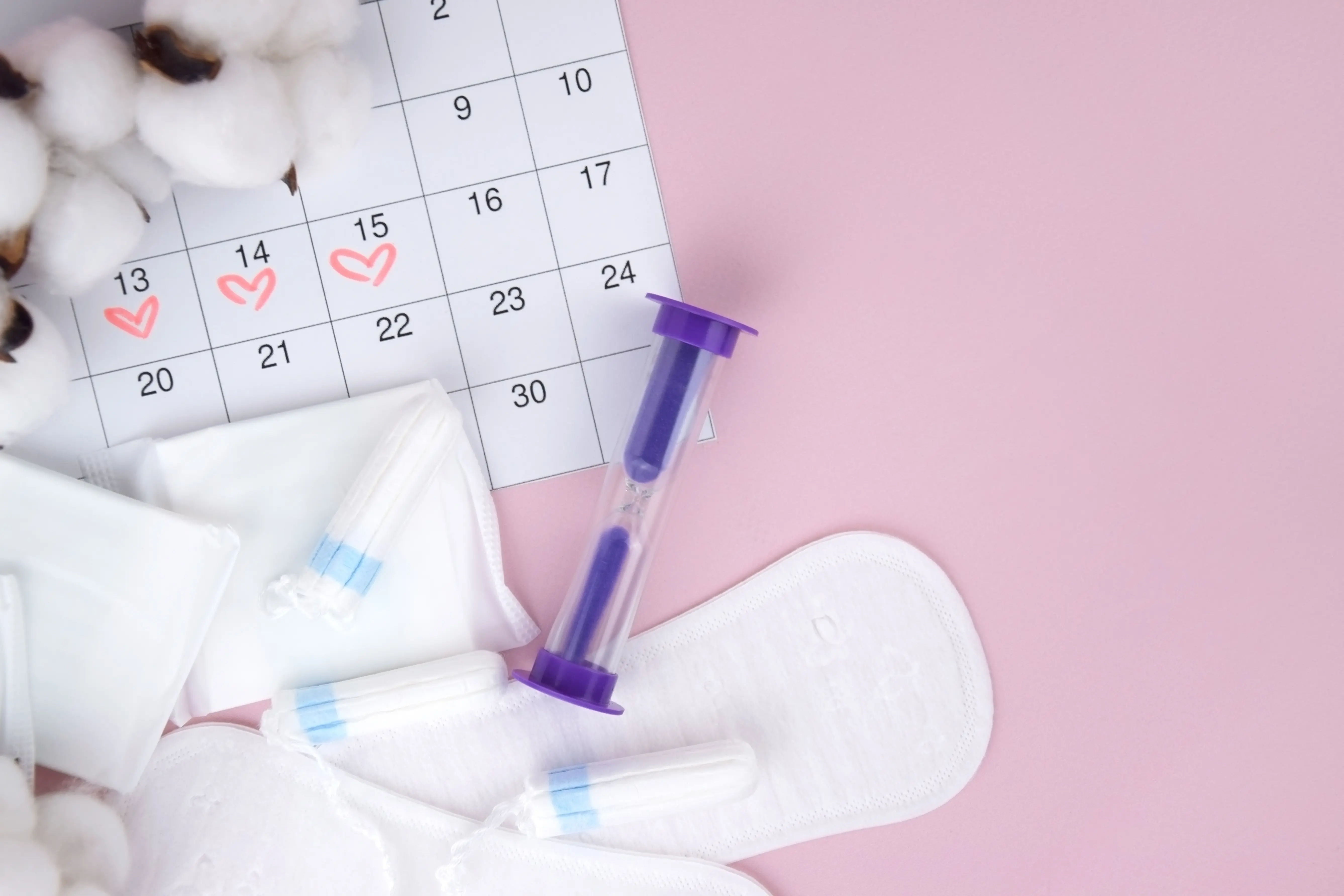Hair Fall, Mood Swings, and Irregular Periods? Consider These Hormone Tests
Know about the hormone tests specifically for mood swings, hair fall and irregular periods. Learn when to test in monthly periods and plan a treatment path accordingly.

Written by Dr. Dhankecha Mayank Dineshbhai
Reviewed by Dr. D Bhanu Prakash MBBS, AFIH, Advanced certificate in critical care medicine, Fellowship in critical care medicine
Last updated on 9th Sep, 2025
%20(1).webp?tr=q-80,f-webp,w-350,dpr-2,c-at_max 700w)
For many women, the journey through Polycystic Ovary Syndrome (PCOS) can feel like navigating a complex maze, often presenting a perplexing combination of symptoms such as persistent hair fall, unpredictable mood swings, and frustratingly irregular periods. These seemingly disparate issues are frequently interconnected, serving as vital clues that point towards an underlying hormonal imbalance. Understanding the significance of diagnostic tests in this context is paramount.
Symptoms That Suggest Hormonal Imbalance
Hormones regulate almost every process in the body. When they fall out of balance, the effects can be far-reaching, particularly for women with PCOS. Common symptoms include:
1. Hair Fall
Unlike normal shedding, hormonal hair loss is often caused by high levels of androgens, such as testosterone, leading to androgenic alopecia, a pattern of thinning hair on the scalp and possible unwanted facial or body hair.
2. Mood Swings
Hormones such as estrogen, progesterone, and thyroid hormones influence brain chemistry. Fluctuations can cause irritability, anxiety, or depression, which are common in PCOS.
3. Irregular Periods
Irregular, absent, or heavy periods suggest an issue with ovulation, which is often disrupted in PCOS due to excess androgens and insulin resistance.
4. Other Signs:
- Weight gain or difficulty losing weight due to insulin resistance
- Acne, especially along the jawline or chin
- Fatigue, often linked to thyroid or sleep disruptions
- Fertility issues, due to irregular or absent ovulation
Recognising these symptoms in conjunction is key, as they collectively paint a picture of hormonal dysregulation, necessitating a closer look at specific hormone levels through diagnostic testing. This unique angle, where multiple symptoms converge to suggest a singular test cluster, underscores the importance of a holistic diagnostic approach.
Testosterone, TSH, Prolactin, LH and Vitamin D Panels
When considering a hormone test for hair loss and PCOS, a targeted panel of blood tests is essential. These tests provide a detailed snapshot of your hormonal health, offering crucial insights into the root causes of your symptoms.
Testosterone
Testosterone, though primarily a male hormone, is present in women in smaller amounts. In PCOS, levels of total testosterone often become elevated, contributing to symptoms like hair loss, hirsutism, and acne. A PCOS blood test typically includes a measurement of total testosterone. High testosterone can disrupt the normal menstrual cycle and inhibit ovulation. Monitoring this hormone is vital for diagnosing PCOS and guiding treatment to manage androgen-related symptoms.
TSH (Thyroid Stimulating Hormone)
The thyroid gland plays a pivotal role in metabolism, energy levels, and hormonal balance. The pituitary gland produces TSH and signals the thyroid to produce its hormones (T3 and T4). Abnormal TSH levels can indicate an underactive (hypothyroidism) or overactive (hyperthyroidism) thyroid. Hypothyroidism, in particular, can mimic or exacerbate PCOS symptoms, leading to fatigue, weight gain, hair loss, and menstrual irregularities. Therefore, assessing TSH is a critical step in differentiating symptoms and ensuring a comprehensive diagnosis.
Book a TSH (Thyroid Stimulating Hormone)
Prolactin
Prolactin is a hormone primarily associated with lactation. However, elevated prolactin levels (hyperprolactinemia) in non-pregnant, non-lactating women can interfere with ovulation, leading to irregular periods or amenorrhoea. It can also cause unexpected breast milk discharge (galactorrhoea) and contribute to headaches or visual disturbances if caused by a pituitary adenoma. Checking prolactin levels helps rule out other endocrine disorders that might present with similar symptoms to PCOS.
LH (Luteinizing Hormone)
Luteinizing Hormone (LH), along with Follicle-Stimulating Hormone (FSH), plays a crucial role in the menstrual cycle, regulating ovulation. In women with PCOS, the ratio of LH to FSH is often elevated (typically 2:1 or 3:1), which can indicate a disruption in the normal ovulatory process. This imbalance leads to the development of numerous small cysts on the ovaries, characteristic of PCOS, and contributes to irregular periods. Understanding LH levels is key to assessing ovulatory function.
Book a Luteinizing Hormone (LH)
Vitamin D
While often referred to as a vitamin, Vitamin D functions more like a hormone in the body, with receptors found in almost every tissue. Low Vitamin D levels are highly prevalent in women with PCOS and have been linked to worsening insulin resistance, increased androgen levels, and impaired ovulation. Adequate Vitamin D is crucial for overall metabolic health and fertility. Assessing your Vitamin D status can inform supplementation strategies, which may positively impact PCOS symptoms.
Get Your Reproductive Health Assessed
Popular Hormone Test Packages from Apollo 24|7
For a comprehensive assessment, Apollo 24|7 offers integrated hormone panels that specifically target PCOS-related markers:
- Apollo PCOD Comprehensive Test: This test offers a comprehensive assessment of hormonal and metabolic factors contributing to PCOS.
Book a Apollo PCOD comprehensive Test
- Apollo PCOD Advanced Test: This test provides a comprehensive examination of key hormonal and metabolic indicators relevant to PCOS.
Book a Apollo PCOD Advanced Test
These packages streamline the diagnostic process, ensuring that all relevant hormonal parameters are evaluated together, providing a more complete picture of your health.
When to Test During Your Monthly Cycle
The timing of hormone tests is crucial, especially for women of reproductive age, as hormone levels fluctuate throughout the menstrual cycle. Incorrect timing can lead to misleading results and an inaccurate diagnosis.
If your periods are highly irregular or absent, your doctor will advise on the best time to conduct the tests. They might opt for a random sample or schedule it based on other clinical indicators. Always consult your healthcare provider for personalised advice on test timing, as this ensures the most accurate and interpretable results for your specific situation.
Using Reports to Plan a Treatment Path
Your doctor will interpret the test results in conjunction with your symptoms and medical history to arrive at a diagnosis and develop a personalised treatment plan. Here’s what your numbers might indicate:
Tailored Treatment Strategies
Once your hormonal imbalances are identified, your doctor will tailor a treatment plan based on your goals, whether it’s symptom relief, fertility support, or overall hormonal balance.
1. Lifestyle Modifications
- A low glycaemic index diet
- Regular physical activity
- Weight management
These changes can reduce insulin resistance and improve hormone balance.
2. Medications
- Metformin for insulin resistance
- Oral contraceptives to regulate periods and lower testosterone
- Spironolactone for excess hair and acne
- Thyroid hormone replacement (if TSH is abnormal)
- Dopamine agonists (for high prolactin)
- Vitamin D supplements for deficiency
3. Fertility Treatments
If pregnancy is the goal and natural conception is difficult, your doctor may suggest:
- Ovulation-inducing drugs (like Clomiphene or Letrozole)
- Assisted reproductive techniques (e.g., IUI or IVF)
4. Symptom-Specific Therapies
- Minoxidil or platelet-rich plasma (PRP) for hair loss
- Antidepressants or therapy for mood disturbances
- Skincare regimens or oral treatments for acne
Schedule Hormonal Health Panel via Apollo 24|7
Taking control of your hormonal health begins with accurate diagnostics. Apollo 24|7 offers a convenient and reliable platform for booking necessary hormone tests from the comfort of your own home.
Advantages of Apollo 24|7 for Your Diagnostic Needs
Apollo 24|7 makes hormone testing and management easy and accessible.
Key Benefits:
- Online booking & home sample collection
- Reliable diagnostic panels tailored for PCOS
- Access to Apollo's trusted hospital network
- Quick, secure report delivery (within 24 to 48 hours)
- Affordable pricing and discounts
- Digital health records for easy follow-up
Booking your hormonal health panel is a straightforward process. Simply visit the Apollo 24|7 website (https://www.apollo247.com/lab-tests) or download their app, search for the specific hormone test or PCOS package you need, select a convenient time for home sample collection, and confirm your booking. This proactive step can provide the clarity you need to work with your healthcare provider towards a more balanced and healthier future.
Conclusion
Hair fall, mood swings, and irregular periods are more than just frustrating symptoms—they could be your body’s way of signalling a more profound hormonal imbalance like PCOS. Testing hormones like Testosterone, TSH, LH, Prolactin, and Vitamin D can uncover the root of the problem and guide effective treatment. Whether your goal is to feel better, get your cycle back on track, improve fertility, or simply gain a better understanding of your body, hormone tests are a vital first step. Empower yourself with knowledge, act early, and consult your healthcare provider with clarity and confidence.




